人妻 地理科学前沿论坛2024年第31讲(总第126期)暨第三届极端水文气候与流域生态安全国际研讨会
研讨会主题:极端水文气候与流域生态安全
研讨会时间:2024.12.10(星期二)9:00-17:00
研讨会地点:人妻 建工楼A座408会议室
为推动极端水文气候与流域生态安全领域研究,促进流域生态学学科发展,人妻 (地理与空间信息技术系)将举办“第三届极端水文气候与流域生态安全国际研讨会”。本次研讨会特邀波兰、意大利、南非、德国5位及国内3位专家作专题报告,内容涵盖生态、地理、遥感等方面,旨在促进多学科交叉融合、加强国际化合作,推动流域环境管理与可持续发展。热忱欢迎相关领域的专家学者参会!
主办单位:
人妻 地理与空间信息技术系
人妻 东海研究院
人妻 陆海国土空间利用与治理浙江省协同创新中心
会议议程 Schedule
Time | Activities | Moderator | |
09:00-9:10 | Prof. Naicheng Wu 吴乃成 (Ningbo University) Welcome and introduction | Dr. Hongli Mu | |
Session 1: 8 Presentations (each 30 min. + 10 min. discussion) | |||
09:10-09:50 | Prof. Beata Messyasz (Adam Mickiewicz University, Poland) Role of the habitat with Cladophora mats for phytoplankton and periphyton development | Dr. Tatenda Dalu | |
09:50-10:30 | Prof. Dr. Tian Feng 冯添 (Ningbo University) Role of the major cereal crops in regional carbon cycle and sequestration | ||
10:30-10:50 | Coffee break | ||
10:50-11:30 | Dr. Tatenda Dalu (University of Mpumalanga, South Africa) Freshwater plastic pollution in Africa: challenges, impacts, and research insights | Dr. Barbara Leoni | |
11:30-12:10 | Dr. Mwazvita TB Dalu (University of Mpumalanga, South Africa) Pro-environmental behaviour and plastic pollution in Africa | ||
12:10-13:30 | Lunch | ||
13:30-14:10 | Dr. Barbara Leoni (University of Milano-Bicocca, Italy) Plastisphere in freshwater ecosystems | Prof. Tian Feng | |
14:10-14:50 | Dr. Yufan Chen 陈妤凡 (Ningbo University) Multiscale pressures on environmental sustainability and their spatial governance: practices across different regions in China | ||
14:50-15:10 | Coffee break | ||
15:10-15:50 | Dr. Sangar Khan (Ningbo University) From simplicity to complexity: machine learning for predicting chlorophyll-a in two different catchments | Prof. Beata Messyasz | |
15:50-16:30 | PhD student Kristin Peters (Kiel University, Germany) RESIST: Multilevel response to stressor increase and release in stream ecosystems — Spatio-temporal dynamics of environmental variables, stressors and their interactions on the instream- and catchment scale | ||
Session 2: Concluding session | |||
16:30-17:00 | Prof. Naicheng Wu 吴乃成 (Ningbo University) Discussion and planning of future activities | Dr. Juanjuan Chen | |
报告人简介Speakers Biography
Prof. Dr. Beata Messyasz (Adam Mickiewicz University, Poland)
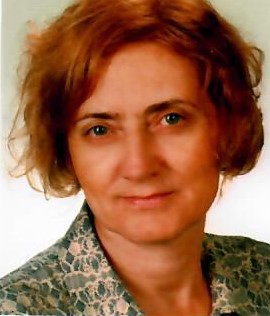 Ph.D., D.Sc. Beata Messyasz is since 2016 a Professor at the Hydrobiology Department, Institute of Environmental Biology, Adam Mickiewicz University in Poznan, Poland. She obtained her Ph.D. and habilitation from AMU in Biology (Hydrobiology, Phycology) and continued her research in environmental biology and ecology of algae in various projects at the same University. In the years 2016–2020 she was the Vice-Dean for science and international cooperation at the Faculty of Biology of the AMU. From 2020, she is the Dean of the Faculty of Biology. Her scientific interest include the dynamics of phytoplankton and phytobenthos assemblages in reservoirs of different trophic state. In addition, she specializes in the role of micro- and macroalgae in the primary production and relationship between trophic state and algae life cycle strategies and their survival in a variable environment.
Ph.D., D.Sc. Beata Messyasz is since 2016 a Professor at the Hydrobiology Department, Institute of Environmental Biology, Adam Mickiewicz University in Poznan, Poland. She obtained her Ph.D. and habilitation from AMU in Biology (Hydrobiology, Phycology) and continued her research in environmental biology and ecology of algae in various projects at the same University. In the years 2016–2020 she was the Vice-Dean for science and international cooperation at the Faculty of Biology of the AMU. From 2020, she is the Dean of the Faculty of Biology. Her scientific interest include the dynamics of phytoplankton and phytobenthos assemblages in reservoirs of different trophic state. In addition, she specializes in the role of micro- and macroalgae in the primary production and relationship between trophic state and algae life cycle strategies and their survival in a variable environment.
She has published more than 80 research papers and 23 book chapters. The total IF of publications from the ISI Master Journal List is 294.38. The Hirsch index is 23. She delivered 44 lectures upon invitation, she co-authored 312 posters or oral presentations presented at international and national conferences. She took (take) part in the implementation of 17 research grants, acting as the project manager in 12 of them. Promotion of licentiate's and master's theses at the Faculty of Biology Adam Mickiewicz University in Poznan covers respectively 39 and 62 students. Since 2016, she has been the national coordinator of the Night of Biologists, which annually prepares over 30 scientific units (Universities, Botanical Gardens, Institutes of PAN) in Poland.
Even 10 years ago, it was difficult to find any scientific papers on freshwater macroalgae. It sparked her interest in the chemical composition and other properties of micro- and macroscopic green algae. Her further research achievements include: (i) determining the physicochemical reasons for the ecological dominance of freshwater micro- and macroalgae in inland waters; (ii) recognizing bioactive compounds in algal biomass (e.g. polysaccharide sulphates (ulvans) in the cell walls of green macroalgae, increasing the strength of cell walls during the growing season and facilitate the creation of large mats; (iii) quantitative determination of polyphenols (allelopathic substances) released into the environment by algae as a result of biotic stress; (iv) microplastic pollution of freshwaters – results was published in the prestigious Nature. The results of research are also three patents:
(1) “Bio-fertilizer for increasing the starch content in potato tubers” – Polish Patent Office (10.09.2021), after considering the application number P.438915
(2) “Plant growth biostimulator” – Polish Patent Office (01.08.2018), after considering the application number P.412074
(3) “Cosmetic composition” – Polish Patent Office (02.12.2016), after considering the application number P.412075
Senior Lecturer Dr. Tatenda Dalu (University of Mpumalanga, South Africa)
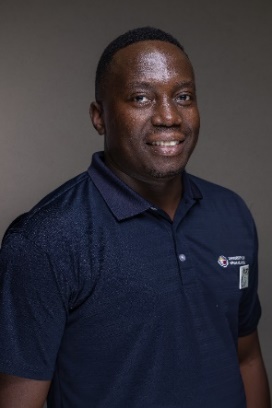 Dr. Tatenda Dalu is a Senior Lecturer at the University of Mpumalanga, South Africa. He has a PhD Marine Biology (2015) from Rhodes University. His research focuses on exploring and quantifying the extent to which aquatic faunal communities are sustained by transfers of organic matter and assessing the impact of anthropogenic disturbances on the aquatic ecosystems. Dr Dalu leads the Aquatic Systems Research Group (www.aquasystems-res.com) at the university. He has co-/supervised 4 PhD and 26 MSc to completion, co-edited 3 books, co-authored 23 book chapters, and 221 journal articles in ISI peer-reviewed journals. Dr Dalu has also described two new invertebrate species (i.e., copepod Lovenula raynerae Suárez-Morales, Wasserman and Dalu 2015; fairy shrimp Streptocephalus sangoensis Nhiwatiwa, Dalu and Brendonck 2017) working with colleagues. He was part of the team that reviewed the genus Triops spp. in Africa. Dr Dalu is currently the Chair of Aquatic Sciences PAC for the South African Council for Natural Scientific Professions (SACNASP), member of the British Ecological Society Grant Committee and Alien Species Risk Analysis Review Panel (ASRARP). Furthermore, he is a Subject Editor for Global Change Biology, Associate Editor for Ecology and Evolution, Aquatic Invasions, BioInvasion Records, African Journal of Ecology and Frontiers in Water – Environmental Water Quality, and Editorial Board Member for Science of the Total Environment and Environmental Advances. Dr Dalu is rated among the top 2% scientist of the world by Elsevier-Stanford University citation ranking for the year 2022 and 2023 (//elsevier.digitalcommonsdata.com/datasets/btchxktzyw/7).
Dr. Tatenda Dalu is a Senior Lecturer at the University of Mpumalanga, South Africa. He has a PhD Marine Biology (2015) from Rhodes University. His research focuses on exploring and quantifying the extent to which aquatic faunal communities are sustained by transfers of organic matter and assessing the impact of anthropogenic disturbances on the aquatic ecosystems. Dr Dalu leads the Aquatic Systems Research Group (www.aquasystems-res.com) at the university. He has co-/supervised 4 PhD and 26 MSc to completion, co-edited 3 books, co-authored 23 book chapters, and 221 journal articles in ISI peer-reviewed journals. Dr Dalu has also described two new invertebrate species (i.e., copepod Lovenula raynerae Suárez-Morales, Wasserman and Dalu 2015; fairy shrimp Streptocephalus sangoensis Nhiwatiwa, Dalu and Brendonck 2017) working with colleagues. He was part of the team that reviewed the genus Triops spp. in Africa. Dr Dalu is currently the Chair of Aquatic Sciences PAC for the South African Council for Natural Scientific Professions (SACNASP), member of the British Ecological Society Grant Committee and Alien Species Risk Analysis Review Panel (ASRARP). Furthermore, he is a Subject Editor for Global Change Biology, Associate Editor for Ecology and Evolution, Aquatic Invasions, BioInvasion Records, African Journal of Ecology and Frontiers in Water – Environmental Water Quality, and Editorial Board Member for Science of the Total Environment and Environmental Advances. Dr Dalu is rated among the top 2% scientist of the world by Elsevier-Stanford University citation ranking for the year 2022 and 2023 (//elsevier.digitalcommonsdata.com/datasets/btchxktzyw/7).
Associate Prof. Dr. Barbara Leoni (University of Milano-Bicocca, Italy)
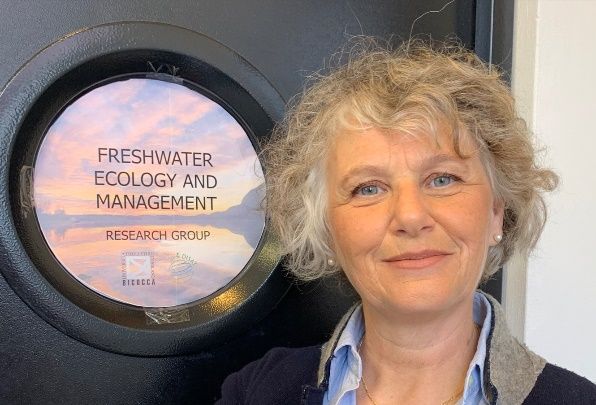 Prof. Barbara Leoni is associate Professor at the Department of Earth and Environmental Sciences, University of Milano-Bicocca, Milan. She received her master’s degree in Natural Sciences and her Ph.D. in Natural and Environmental Sciences (1996) from University of Milan Statale, Milan. She teaches at under-graduate and post-graduate levels: Ecology and management of freshwater, Isotopes in environmental sciences, Monitoring of surface waters and groundwaters. Prof. Leoni leads the Freshwater ecology and management group at the university. The principal topics she dealt are aquatic chemistry, biodiversity, ecology and food webs (mainly lakes and rivers), origin, pathways, and fate of nutrient loadings at different spatial and temporal scales, restoration and management of natural and man-managed aquatic ecosystems, impacts on aquatic ecosystems of climate change and ‘plastisphere’, statistical analysis and computational model of ecological data. She authored 65 journal articles in ISI peer-reviewed journals and she is Associate Editor for Water.
Prof. Barbara Leoni is associate Professor at the Department of Earth and Environmental Sciences, University of Milano-Bicocca, Milan. She received her master’s degree in Natural Sciences and her Ph.D. in Natural and Environmental Sciences (1996) from University of Milan Statale, Milan. She teaches at under-graduate and post-graduate levels: Ecology and management of freshwater, Isotopes in environmental sciences, Monitoring of surface waters and groundwaters. Prof. Leoni leads the Freshwater ecology and management group at the university. The principal topics she dealt are aquatic chemistry, biodiversity, ecology and food webs (mainly lakes and rivers), origin, pathways, and fate of nutrient loadings at different spatial and temporal scales, restoration and management of natural and man-managed aquatic ecosystems, impacts on aquatic ecosystems of climate change and ‘plastisphere’, statistical analysis and computational model of ecological data. She authored 65 journal articles in ISI peer-reviewed journals and she is Associate Editor for Water.
Lecturer Dr. Mwazvita TB Dalu (University of Mpumalanga, South Africa)
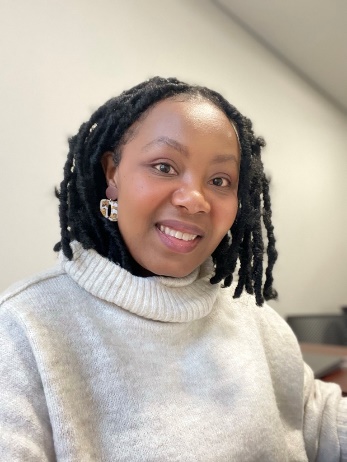 Dr Mwazvita TB Dalu is a Lecturer in Environmental Science at the University of Mpumalanga. She has a PhD in Environmental Science from Rhodes University, South Africa. Her research interests include society and natural resource management, sustainable livelihoods and climate change adaptation and mitigation. She specialises in political ecology. She has supervised ten postgraduate students at Masters and Honours level to completion, and currently supervises five students and Masters and PhD level. She authored and co-authored 36 peer reviewed journal articles and book chapters. Mwazvita is a Committee Member of the Diversity, Equity and Inclusion committee of the International Association for Society and Natural Resources (IASNR). She serves as a reviewer for several international journals.
Dr Mwazvita TB Dalu is a Lecturer in Environmental Science at the University of Mpumalanga. She has a PhD in Environmental Science from Rhodes University, South Africa. Her research interests include society and natural resource management, sustainable livelihoods and climate change adaptation and mitigation. She specialises in political ecology. She has supervised ten postgraduate students at Masters and Honours level to completion, and currently supervises five students and Masters and PhD level. She authored and co-authored 36 peer reviewed journal articles and book chapters. Mwazvita is a Committee Member of the Diversity, Equity and Inclusion committee of the International Association for Society and Natural Resources (IASNR). She serves as a reviewer for several international journals.
Ms. Kristin Peters (Kiel University, Germany)
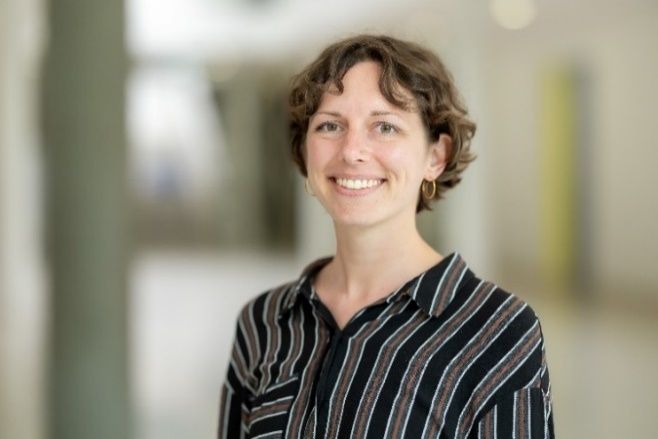 MSc. Kristin Peters is a PhD student at Kiel University, Germany, in the Department of Hydrology and Water Resources Management working in the Collaborative Research Center RESIST funded by the German Research Foundation. MSc. Peters specializes in hydrological modelling with SWAT+. She is experienced in streamflow, stream temperature, and dissolved oxygen modelling, as well as landuse change impact assessment on water resources. She also investigated hyporheic exchange flows using distributed temperature sensing in rivers. Apart from the RESIST project, MSc. Peters has worked on two DAAD-funded international projects, which included research work in Myanmar and India. She is part of the steering committee of the Germany Hydrological Society network of young hydrologists and is a coordinator of the IDG Global Water Network.
MSc. Kristin Peters is a PhD student at Kiel University, Germany, in the Department of Hydrology and Water Resources Management working in the Collaborative Research Center RESIST funded by the German Research Foundation. MSc. Peters specializes in hydrological modelling with SWAT+. She is experienced in streamflow, stream temperature, and dissolved oxygen modelling, as well as landuse change impact assessment on water resources. She also investigated hyporheic exchange flows using distributed temperature sensing in rivers. Apart from the RESIST project, MSc. Peters has worked on two DAAD-funded international projects, which included research work in Myanmar and India. She is part of the steering committee of the Germany Hydrological Society network of young hydrologists and is a coordinator of the IDG Global Water Network.
Prof. Dr. Tian Feng 冯添 (Ningbo University)
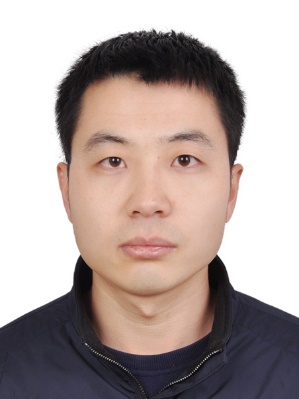 Dr. Tian Feng is a master's supervisor at the Faculty of Civil Engineering and Geographical Environment, Ningbo University. He holds a Ph.D. from Xi'an Jiaotong University and completed postdoctoral research at the Institute of Earth Environment, Chinese Academy of Sciences. He received the Zhejiang Geographical Society Youth Geography Science and Technology Award (2022) and was selected for the Ningbo Leading and Top Talent Training Project (third tier, 2022). He serves as a committee member of the Remote Sensing and Geographic Information System Professional Committee of the Zhejiang Geographical Society and is a reviewer for several SCI journals, including Atmospheric Environment, Advances in Atmospheric Sciences, Science of the Total Environment, Atmospheric Pollution Research, Journal of Environmental Sciences, Urban Climate, and Atmospheric Research. His research focuses on key chemical processes of air pollution, the impact of long-term climate change on air pollution, and aerosol responses. He also applies environmental remote sensing to monitor air pollution and surface environments, such as long-term remote sensing of air pollution, relationships between urban expansion, air pollution, and surface heat environments. He has published over 50 academic papers, including 20 as the first or corresponding author, and leads four national and provincial research projects.
Dr. Tian Feng is a master's supervisor at the Faculty of Civil Engineering and Geographical Environment, Ningbo University. He holds a Ph.D. from Xi'an Jiaotong University and completed postdoctoral research at the Institute of Earth Environment, Chinese Academy of Sciences. He received the Zhejiang Geographical Society Youth Geography Science and Technology Award (2022) and was selected for the Ningbo Leading and Top Talent Training Project (third tier, 2022). He serves as a committee member of the Remote Sensing and Geographic Information System Professional Committee of the Zhejiang Geographical Society and is a reviewer for several SCI journals, including Atmospheric Environment, Advances in Atmospheric Sciences, Science of the Total Environment, Atmospheric Pollution Research, Journal of Environmental Sciences, Urban Climate, and Atmospheric Research. His research focuses on key chemical processes of air pollution, the impact of long-term climate change on air pollution, and aerosol responses. He also applies environmental remote sensing to monitor air pollution and surface environments, such as long-term remote sensing of air pollution, relationships between urban expansion, air pollution, and surface heat environments. He has published over 50 academic papers, including 20 as the first or corresponding author, and leads four national and provincial research projects.
Lecturer Dr. Yufan Chen 陈妤凡 (Ningbo University)
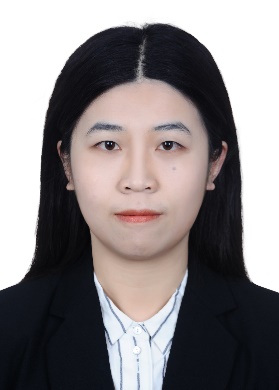 Dr. Yufan Chen is a Lecturer at the Department of Geography and Spatial Information Technology, Ningbo University. She holds a Ph.D. from the Institute of Geographic Sciences and Natural Resources Research, Chinese Academy of Sciences, and has been a visiting scholar at KU Leuven, Belgium. Her main research areas include environmental economics and sustainability, land spatial planning and governance. Dr. Chen has published 25 papers in SCI/SSCI/CSCD/CSSCI indexed journals and authored a monograph. She has led projects funded by the National Natural Science Foundation of China and Zhejiang Provincial Natural Science Foundation of China, as well as several other municipal and departmental projects. In 2024, she was selected for Ningbo Yongjiang Talent Programme.
Dr. Yufan Chen is a Lecturer at the Department of Geography and Spatial Information Technology, Ningbo University. She holds a Ph.D. from the Institute of Geographic Sciences and Natural Resources Research, Chinese Academy of Sciences, and has been a visiting scholar at KU Leuven, Belgium. Her main research areas include environmental economics and sustainability, land spatial planning and governance. Dr. Chen has published 25 papers in SCI/SSCI/CSCD/CSSCI indexed journals and authored a monograph. She has led projects funded by the National Natural Science Foundation of China and Zhejiang Provincial Natural Science Foundation of China, as well as several other municipal and departmental projects. In 2024, she was selected for Ningbo Yongjiang Talent Programme.
Dr. Sangar Khan (Ningbo University)
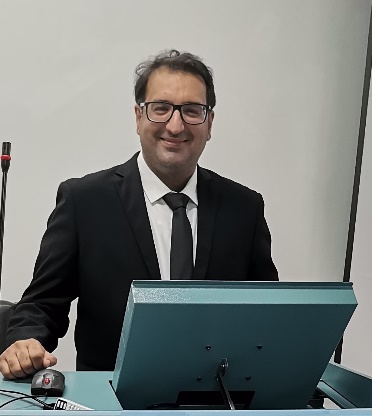 Dr. Sangar Khan is a Postdoctoral Researcher at the Department of Geography and Spatial Information Techniques, Ningbo University, China. He received a PhD in Environmental Engineering from Zhejiang University (2018–2022) and both a Master's and Bachelor's degree in Soil Science (2010–2016) from the Arid Agriculture University, Pakistan. Dr. Sangar Khan focuses on environmental engineering, freshwater ecology, and the application of machine-learning techniques to address ecological and environmental problems. His research focuses on predicting benthic chlorophyll-a concentrations in freshwater ecosystems, particularly emphasizing the impact of storm and spillway events. Dr. Khan has secured a National Science Foundation project and supervised a Master's student. Their work explores the intersection of machine learning, non-point source pollution, and water quality, especially concerning the release of colloidal phosphorus. Dr. Sangar Khan published more than 30 SCI papers, including in Geoderma, Chemosphere, Science of the Total Environment, Environmental Pollution, Journal of Cleaner Production, Ecology and Evolution, and Journal of Environmental Management.
Dr. Sangar Khan is a Postdoctoral Researcher at the Department of Geography and Spatial Information Techniques, Ningbo University, China. He received a PhD in Environmental Engineering from Zhejiang University (2018–2022) and both a Master's and Bachelor's degree in Soil Science (2010–2016) from the Arid Agriculture University, Pakistan. Dr. Sangar Khan focuses on environmental engineering, freshwater ecology, and the application of machine-learning techniques to address ecological and environmental problems. His research focuses on predicting benthic chlorophyll-a concentrations in freshwater ecosystems, particularly emphasizing the impact of storm and spillway events. Dr. Khan has secured a National Science Foundation project and supervised a Master's student. Their work explores the intersection of machine learning, non-point source pollution, and water quality, especially concerning the release of colloidal phosphorus. Dr. Sangar Khan published more than 30 SCI papers, including in Geoderma, Chemosphere, Science of the Total Environment, Environmental Pollution, Journal of Cleaner Production, Ecology and Evolution, and Journal of Environmental Management.
